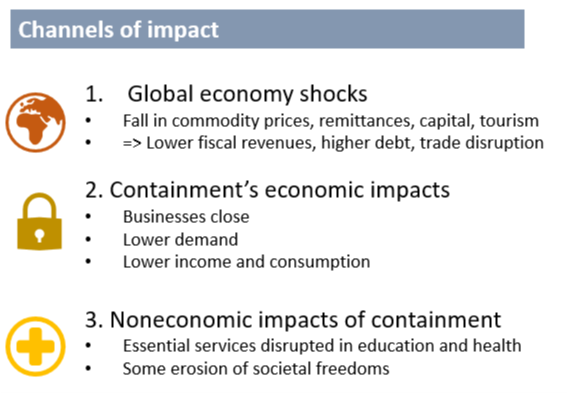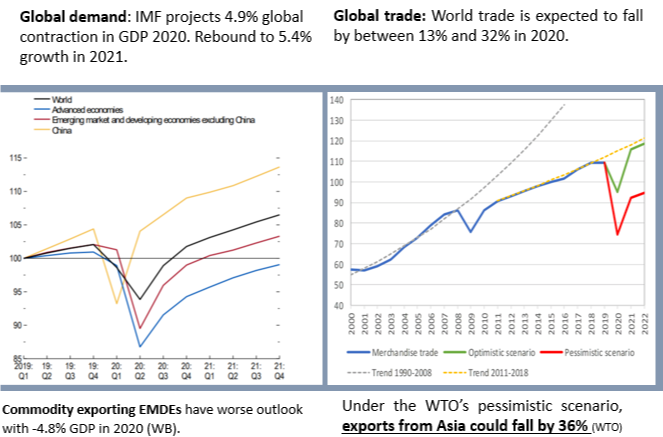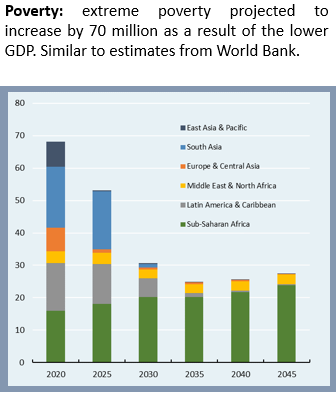While at DFID I would provide new Sec of State an "Introduction to Development". By touching on evolution of diff approaches to development I sought to explain the need for diff parts of DFID & inoculate against claims of simple fixes. Thread 1/n
Yesterday I turned that slide deck into a lecture for undergrads at @UChicago. By showing how development has fallen foul of 1 dimensional fads my aim is to explain why we will cover both macro & micro, understanding what works in improving how teachers teach & how IMF works 2/n
So with some trepidation (I am simplifying massively & miss important development approaches in my overview and nuances in those I do describe), here is the basic thrust of the argument. I am sure #econtwitter can help me improve this. Aim is to show how diff approaches link 3/n
An initial view of development focused on capital: poor countries were poor because they lacked money, or capital (K) esp heavy industry which was hallmark of "developed econ". Soviet Union, China with GLF, India 5 yr plan and World Bank lending all took this view 4/n
One difference was that Soviet Union, China and India sought to finance more capital by driving up savings rates domestically (taking the Solow Growth model literally), while World Bank provided some foreign savings to finance increase in capital. 5/n
While L&MIC did grow, the results were disappointing. Skilled labor (L) was needed to complement and utilize the fancy new capital, SKorea, HK etc illustrated the benefits of more ed workforce, & squeezing individuals to produce more steel created misery 6/n
I see human capital theory, endogenous growth theory, & Sens capabilities all as reaction against obsession with K. Dev focused more on ed & health b/c it helps ppl achieve their capabilities, complements K with higher quality L, and is what fast growth EA economies did 7/n
And yes, I recognize that Sen's capabilities was much more than human capital. It involved autonomy, rights, voice ie power. But what moved forwards as the consensus in development was the intersection of 3 different critiques ie human capital. Power to the poor is way harder 8/n
But as dev was shifting away from obsession with K, the debt crisis hits, partly b/c of all the foreign borrowing to finance K, partly the distorted prices needed to support industry for which countries had no comparative advantage 9/n
I wont discuss merits/demerits of structural adjustment here. But out of this crisis came conviction that *policies* were the key to development. It wasn't the quantity of K or L that mattered as much as the policies that incentivized their efficient production & allocation. 10/n
There are huge arguments about what are the right policies. We need policies that allow market signals to efficiently allocate K but we also want policies that reflect externalities, promote public goods, redistribute. But this argument hides the imp shift to dev as policies 11/n
Then two, seemingly diametrically opposed, trends in academic development hit. Work showing long run impact on current development outcomes of history (eg slave trade and colonization) and RCTs that measure the effectiveness of specific interventions. 12/n
The "institutions" view of development is fascinating but depressing. If I know that ethnic groups who lived in parts of Africa where the TseTse fly prevented the use of draft animals and the plow are still disadvantaged today, what do I do about it? 13/n
aeaweb.org/articles?id=10…
aeaweb.org/articles?id=10…
In contrast, RCTs provide concrete solutions but are criticized as answering only "small" questions (runningres.com/blog/2016/5/27…). I see them as helping solve probs the poor care about, generating knowledge to inform policies ssir.org/articles/entry…
& improving human capital. 14/n
& improving human capital. 14/n
I've spent much my research career doing RCTs on institutions, so I dont see institutions approach to development and RCTs as at odds. Eg my work with Kate Casey @tedmiguel and others on how to practically change institutions, increase trust, democracy, voice of women etc 15/n
So what do we learn from this history of dev? Avoid silver bullet thinking. Improving lives is the goal. K & L, human capital & policies are all important. We should work on what we can practically fix b/c evid shows gains can be achieved even under bad policies & conditions END
• • •
Missing some Tweet in this thread? You can try to
force a refresh








